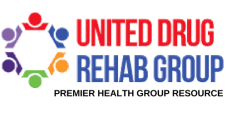Poppin’ Pills: Prescription Drugs and Their Effects
Prescription Drugs Quick Facts
Even though prescription drugs must be distributed by a doctor, many individuals are still able to find access to them. People are most likely to get prescription drugs through friends and family members. Prescription drug abusers tend to believe that you cannot become addicted to the drugs because they are “safe” and are prescribed by a doctor. However, prescription drugs have mind altering properties that can cause dependency. People who abuse prescription drugs quickly become addicted to the euphoric qualities that these drugs have. In a study conducted in 2013 by the NSDUH, 15.3 million people aged 12 and older admitted to abusing prescription drugs. Prescription drugs are the most commonly abused and misused drug, even more so than marijuana.
What Kind of Prescription Drugs Are There?
The most common type of prescription drug that is abused are opioid drugs. Opioid drugs, or painkillers, are taken to reduce headaches, muscle spasms, arthritis, and short term pains. People have gone to different measures in order to feel the effects of the painkillers by snorting and injecting them into the bloodstream. Taking painkillers with alcohol can lead to serious consequences such as overdosing and death. Psychiatric drugs are distributed by a doctor and are used for mental illnesses such as depression, anxiety, bipolar, schizophrenia, and ADHD. These type of drugs have sedatives within them, and if they are mixed with any other drug, it produces a “high.” Another popular form of prescription drugs are stimulants, which produce high levels of energy and alertness. Some of these drugs are Adderall, Ritalin, and Concerta.
Symptoms and Effects of Prescription Drug Misuse
Depending on what drugs are abused, there are different side effects to each of them. For painkillers some people can experience severe respiratory depression, restlessness, bone pain, insomnia, diarrhea, and cold flashes. For depressants, withdrawals are known as “rebound effects.” People experience the opposite of what the psychiatric drugs are suppose to do. Therefore those who are dependent on prescription drugs can experience brain damage, seizures, and other harmful effects. Stimulants can cause depression, disturbances of sleep patterns, fatigue, hostility, paranoia, high blood pressure, irregular heartbeating, seizures, and heart failure.
How to Tell if You Are Addicted to Prescription Drugs and What Can Be Done
If you are experiencing any withdrawal symptoms from prescription drugs, then you may be addicted. United Drug Rehab Group can help you with your substance abuse. We accept clients on a rolling enrollment basis, and our intake coordinators are compassionate about setting up a customized addiction recovery program for you. The treatments we offer to you are pain free and highly effective. Our dual diagnosis technique offers both physical and mental relief, and everything for your addiction recovery program will take place within our luxurious facility. Addiction is a severe disease that affects the mind, body, and soul. It is important to get the well rounded recovery you deserve and need. Call United Drug Rehab Group today, and let us guide you to a path of health, happiness, and sobriety.


